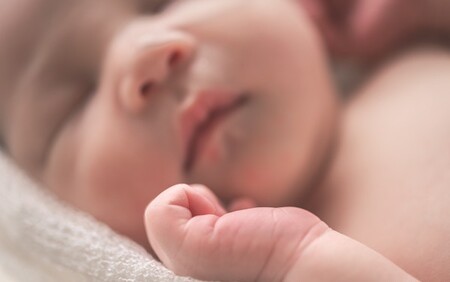
Making 2022 your year
Although 2021 has brought many challenges, we look forward to a new start with 2022. Your focus may now be on your completing family. To help you start your fertility journey, we've put together some basic information so you can be well equipped with the knowledge you need to give yourself the best chance of conceiving.
What are the causes of infertility?
The reasons for infertility vary from person to person. The most common causes of infertility are:
- A woman's age
- Male (sperm) factor
- Ovulation disorders
- Tubal disease
- Endometriosis
- Anatomical factors such as fibroids and other uterine abnormalities
- Factors such as antibodies to sperm may also reduce the ability to conceive
- Combination of male and female factors
A problem in any one of a number of key processes can result in infertility. Male and female factors can exist in isolation or combination and fertility investigations, diagnoses and treatment should always be considered in the context of the couple.
Starting Your Fertility Journey
Heterosexual Couples
If you've been trying to conceive for over 12 months (or 6 months if the woman is over 35) with no success, we recommend that you speak to a fertility specialist. However, you don't have to wait for a fixed period - you can book an appointment with a fertility specialist whenever you are ready to conceive.
Female Same Sex Couples
We have many same sex fertility services to help you start or grow your family, including a shared motherhood programme that allows both partners to take part in the process.
Single Women
We have sperm donation programmes and a dedicated donor team to help guide you on your journey. If you’re not ready to have a child just yet, you can freeze your eggs to help safeguard your fertility.
Egg Sharing
Egg sharing involves giving half of your total eggs collected during your IVF cycle to an anonymous recipient who is unable to produce good quality eggs of her own. This gives both you and the egg recipient the chance of having a baby.
During IVF your ovaries are stimulated with often 10 to12 eggs being produced. UK law allows only one or two fertilised eggs (embryos) to be transferred to the womb. The remaining embryos can be frozen although in most cases these aren't all used, even for subsequent treatments. Egg sharing allows these eggs to be shared with a woman who needs them. Find out more here.
Fertility Testing
The best starting off point is fertility testing. For women, the AMH or Anti Mullerian Hormone blood test is a good indicator of the ovarian reserve, giving some insight into the remaining quantity of eggs and fertile years left.
For men, a semen analysis is an easy way to determine how fertile you are by examining the concentration, shape and motility of your sperm.
There is a misconception that infertility is more common in women than men but this is not the case. In fact, in 30% of couples the cause of infertility is attributed to male factor infertility, 30% are female factor, 30% will have a combination of male and female factors and in 10% no cause will be found. With this in mind, it's important that both men and women engage in fertility testing.
Preparing Body & Mind For Fertility Treatment
Being in the best physical and mental health can massively help when trying to conceive. Extremities of weight can affect ovulation so it's best to have a healthy BMI (body mass index). We also advise patients to ensure a healthy diet and lifestyle that includes exercise and ideally does not include smoking or excessive drinking.
Fertility treatment can impact on your mental health, so we advise our patients to prepare for this by taking time for themselves during the process as well as by getting support from friends and family. We also offer a fertility counselling service for anyone who needs extra support on their fertility journey.
Clinic Locations
Our main clinic is located in Southampton but we also have satellite clinics in Portsmouth. Bournemouth & Chichester, where patients in these areas can avail of bloods. Our Portsmouth clinic also offers semen analysis.
Fertility Webinars
We regularly offer free fertility webinars to help you understand the various fertility options available to you. These webinars concentrate on general fertility, fertility options for female same sex couples and single women, as well as specialised advice to help you on your journey, e.g. how to look after your mental health.
Fertility Advice Tailored To Your Needs
If you'd like to learn more about the fertility treatment options available to you, our team are here to help.

